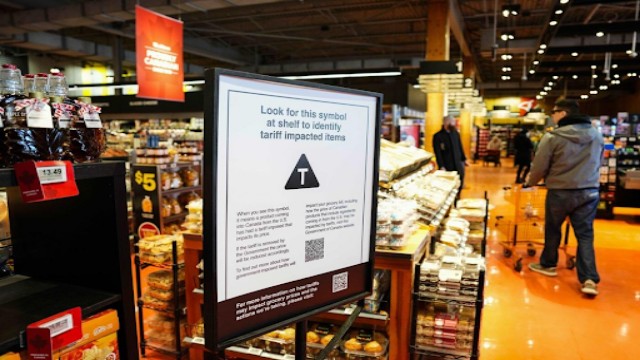
When wind-driven wildfires broke out on the Hawaiian island of Maui last summer, killing more than 100 people and destroying 2,200 buildings, many local residents didn't know the extent of the disaster for days. Crosses honoring victims killed in a recent wildfire are posted along the Lahaina Bypass in Lahaina, Hawaii, Aug. 21, 2023. Evacuation orders in Lahaina were complicated by a telecommunications blackout, caused by the downing of all cellular and landline fibre and copper lines. THE CANADIAN PRESS/AP-Jae C. Hong
Wildfires Expose Telecom Network Vulnerabilities
In the summer, wildfires driven by high winds devastated the Hawaiian island of Maui, killing over 100 people and destroying thousands of buildings. The disaster also caused a telecommunications blackout, leaving many residents in the dark. Lahaina, a town of 13,000, faced significant communication challenges, hampering both evacuation orders and emergency response efforts. The town also suffered from a prolonged commercial power outage.
Authorities are still investigating the failures during the Maui wildfires. A critical takeaway is the necessity of resilient telecom networks during disasters. This lesson is resonating in other regions, including Canada, where wildfires are becoming more common.
Jenifer Sunrise Winter, a communications professor at the University of Hawaii, emphasized the need for understanding network limitations and having contingency plans. "Multiple options are crucial in case one system fails," she said.
Recently, wildfire damage to fibre lines near Fort Nelson, B.C., caused extended cellular and internet outages in northern British Columbia, Yukon, and the Northwest Territories. Despite efforts by telecom provider Northwestel to restore service quickly, the incident highlighted the vulnerability of rural and remote areas during natural disasters.
Canada's telecommunications regulator is aware of these risks. Current consultations are exploring ways to improve telecom services in the Far North and establish better outage reporting protocols for providers.
"No network is flawless," stated CRTC vice-chairperson Adam Scott at an industry event. He stressed the importance of preparing for network failures, especially given the increasing complexity of networks and the unpredictability of extreme weather and other threats.
Telecom Companies’ Response
Canada's major telecom providers—Bell Canada, Rogers Communications, and Telus—have strategies to mitigate wildfire impacts on their networks. These include regular network stability reviews, fuel-powered generators for backup electricity, and collaborations with provincial emergency management teams.
Additionally, companies are exploring innovative solutions. Rogers, in partnership with BC Wildfire Service, installed AI-powered cameras on several towers in B.C. These cameras can detect smoke up to 24 kilometers away, allowing quicker response to potential wildfires. "Every minute matters," said Aaron Pawlick of BC Wildfire Service.
Satellite technology is also being considered to maintain connectivity during emergencies. Telus successfully tested a system that allows smartphones to make calls and send texts via satellites. Rogers is working with SpaceX and Lynk Global for satellite-to-phone connectivity, and Xplore Inc. plans to offer satellite internet in remote areas.
Fibre Optic Networks and Redundancy Challenges
Despite the potential of satellite technology, it has limitations, including capacity issues and high costs. Fibre optic networks, on the other hand, are more resilient to extreme weather. "Fibre is king," said Phil Moore, Telus' vice-president of emergency response, noting that fibre lines have withstood wildfires even when supporting poles were damaged.
However, rural and remote regions face significant challenges due to limited infrastructure. McMahon highlighted the lack of "path diversity," meaning there are not enough backup systems to ensure connectivity if primary lines fail. The Western James Bay Telecom Network, serving Ontario’s James Bay coast, relies on a single regional transport network, making it vulnerable to disconnection if that line is cut.
Telus is working on building additional transport routes across Canada, but the process is slow and expensive. The company is also investing in network resiliency by clearing vegetation around critical infrastructure to reduce fire risks.
Despite these efforts, Moore acknowledged the inherent vulnerability of telecom networks to various climatic threats. "Telecom is vulnerable, and no matter the investment, it remains susceptible to different environmental hazards," he said.















